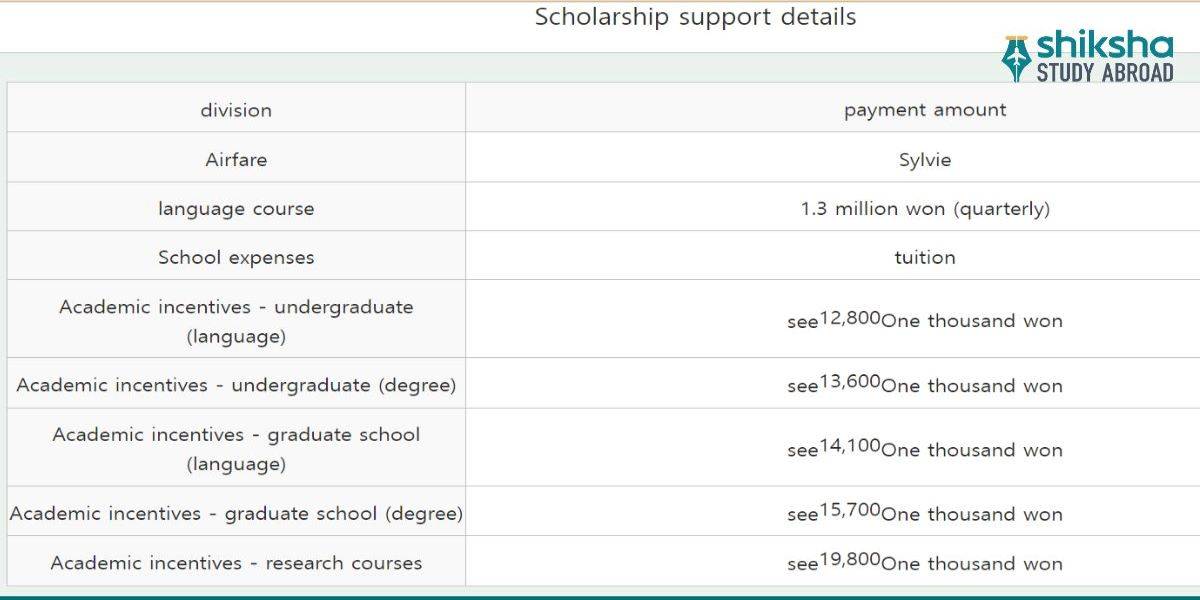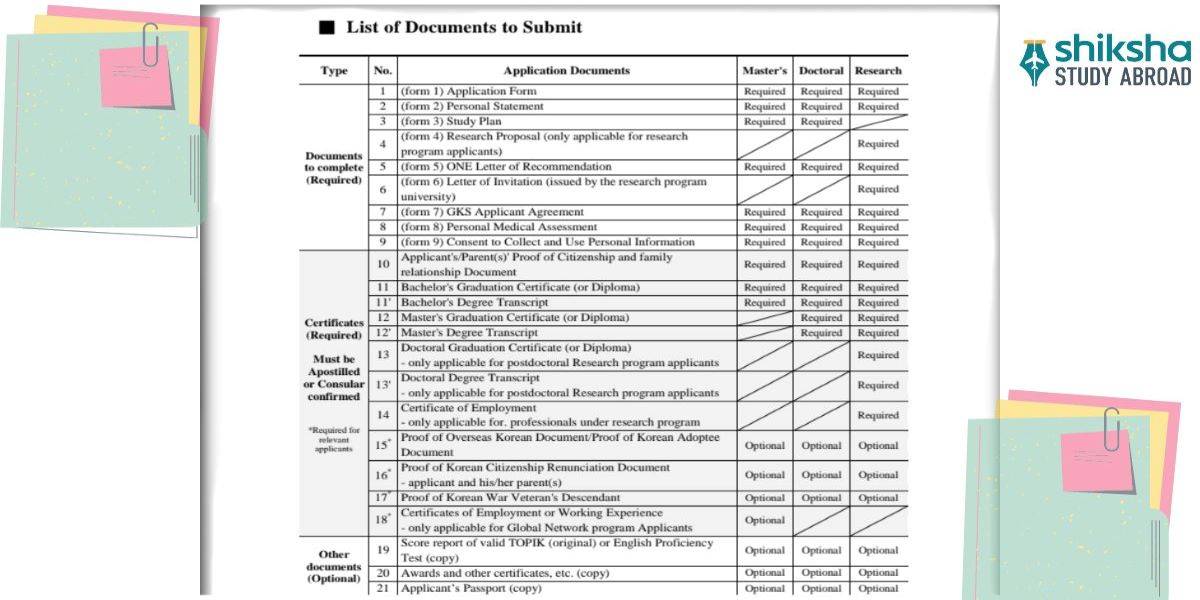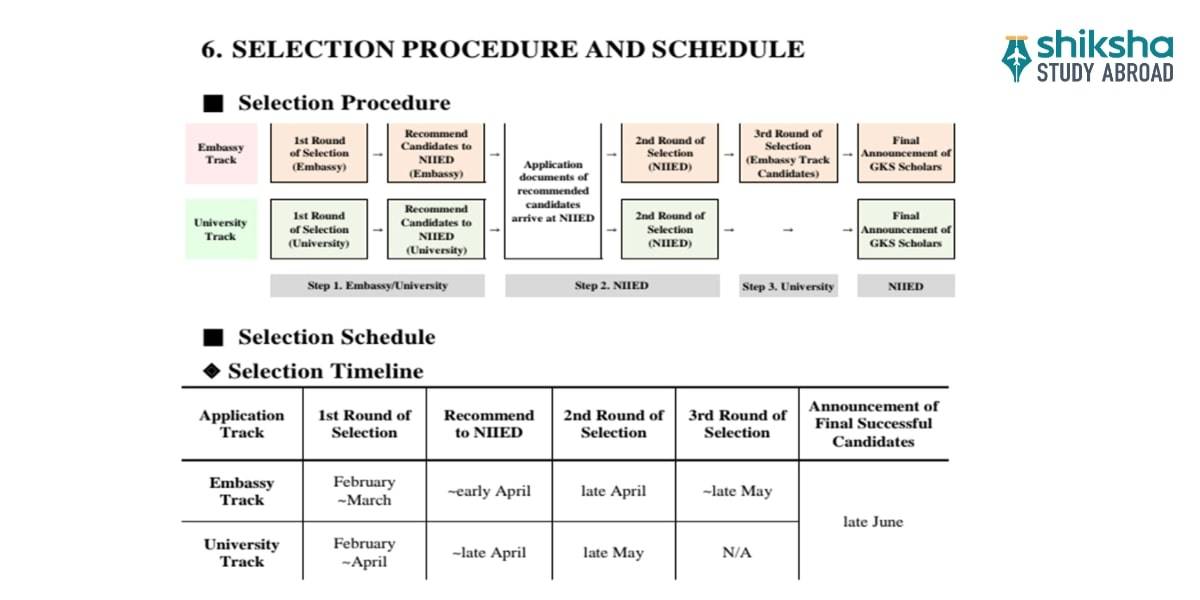Global Korea Scholarship (GKS) for Indian Students in 2026
Want to Study in South Korea for Free? then you should know about GKS Scholarship for Indian students. Under this scholarship, meritorious students get financial aid to cover the expenses of air ticket, tuition fees, monthly expenses, and health insurance during their higher studies.
Global Korea Scholarship (GKS) program was launched in 2010 by Education Ministry of Korea. It offers a golden opportunity for international students. Even if you are an Indian student, you can apply for it.
The main objective of the GKS Scholarship 2026 is to invite talented students to study in South Korea. It is a country known for its top ranked education systems and reputed universities. So, next time if you think about why to choose South Korea? Answer is high quality academic environment with fully funded scholarship for international students.
To be eligible for this fully-funded scholarship, Indian students must meet specific criteria. You need good academic records and must be within the set age limit bracket. Furthermore, you must enroll in one of the universities listed with the GKS program. This article aims to help Indian students understand how to apply for the GKS Scholarship. Don't miss this chance to study abroad!
Related Read: Scholarships to Study in South Korea
- What is GKS Scholarship?
- Benefits of GKS Scholarship for Indian Students
- Eligibility for GKS Scholarship 2026
- Types of GKS Scholarship Program
- How to Apply for GKS Scholarship 2026?
- Universities Under GKS Scholarship
What is GKS Scholarship?
GKS Scholarship is a merit-based scholarship. This scholarship was started to offer financial help to meritorious students. The aim was to attract talented students to study at higher educational institutions in Korea. It also enhances international education exchange and strengthens ties between Korea and the participating countries, including India. The central government of Korea offer this scholarship through the National Institute for International Education (NIIED).
Students enrolled in undergraduate or post-graduate, or doctoral degree courses offered by Korean universities are eligible to apply for the Global Korea Scholarship. Under this scholarship, there is a fixed number of scholarship quotas allocated for each country. For India, the reserved quota in the GKS Scholarship 2026 is 78, which includes 50 University Track and 28 Embassy Track.
Duration of GKS Scholarship for Indian Students
| Type of Course Under GKS Scholarship |
Duration |
|---|---|
| Master’s Degree |
3 Years |
| Doctoral Degree |
4 Years |
| Bachelor Degree |
5 to 7 Years |
Related Read: Top Fully-Funded Scholarship to Study Abroad
Benefits of GKS Scholarship for Indian Students
As a benefit of the GKS Scholarship 2026, students will get economy class airfare, a per-month allowance, Korean proficiency grants, etc. In short, if you are exploring a fully funded scholarship to study abroad, then the Global Korea Scholarship program is for you.
Below, we have mentioned the benefits of the Global Korea Scholarship program in detail:
- Economy class round-trip flight ticket (actual expense)
- Tuition Fee up to 5 Million KRW (INR 3.05 Lakhs)
- Monthly Allowance
- Research Allowance
- Korean Proficiency Grants-
- TOPIK Application Fee
- Degree Completion Grants
- Medical Insurance
- Publication Printing Fee
- Academic Incentives up to 630,000 KRW per month (INR 38,493).
There are some other benefits that you can check in the image below.
Predict your IELTS, TOEFL, and PTE in just 4 steps!
Korean language proficiency is not mandatory to apply for the GKS Scholarship. However, having TOPIK certification or basic knowledge can give applicants an advantage, as it adds bonus points, eases adjustment in Korea, and improves classroom participation during the scholarship period.
GKS Scholarship is fully funded. It means that it covers all major expenses for students studying in South Korea. This includes a full tuition fee waiver, monthly living stipend, and round-trip airfare for your travel.
Related Blog: Cost of Living in South Korea
Pick your stage and get free guidance from counsellors who've helped thousands get into top universities.
 Starting research
Starting research Shortlisting colleges
Shortlisting colleges Exam preparation
Exam preparation SOP/LOR writing
SOP/LOR writing Scholarship & finance
Scholarship & finance Visa application
Visa application
Comments
(10)
S
a year ago
A
a year ago
S
3 months ago






For GKS Scholarship 2026, Indian applicants must be under 40 years.
Other than this, applicant should be in good health, and hold strong academic records. Scholarship applications can be made via Embassy Track or University Track, depending on course preference and eligibility.